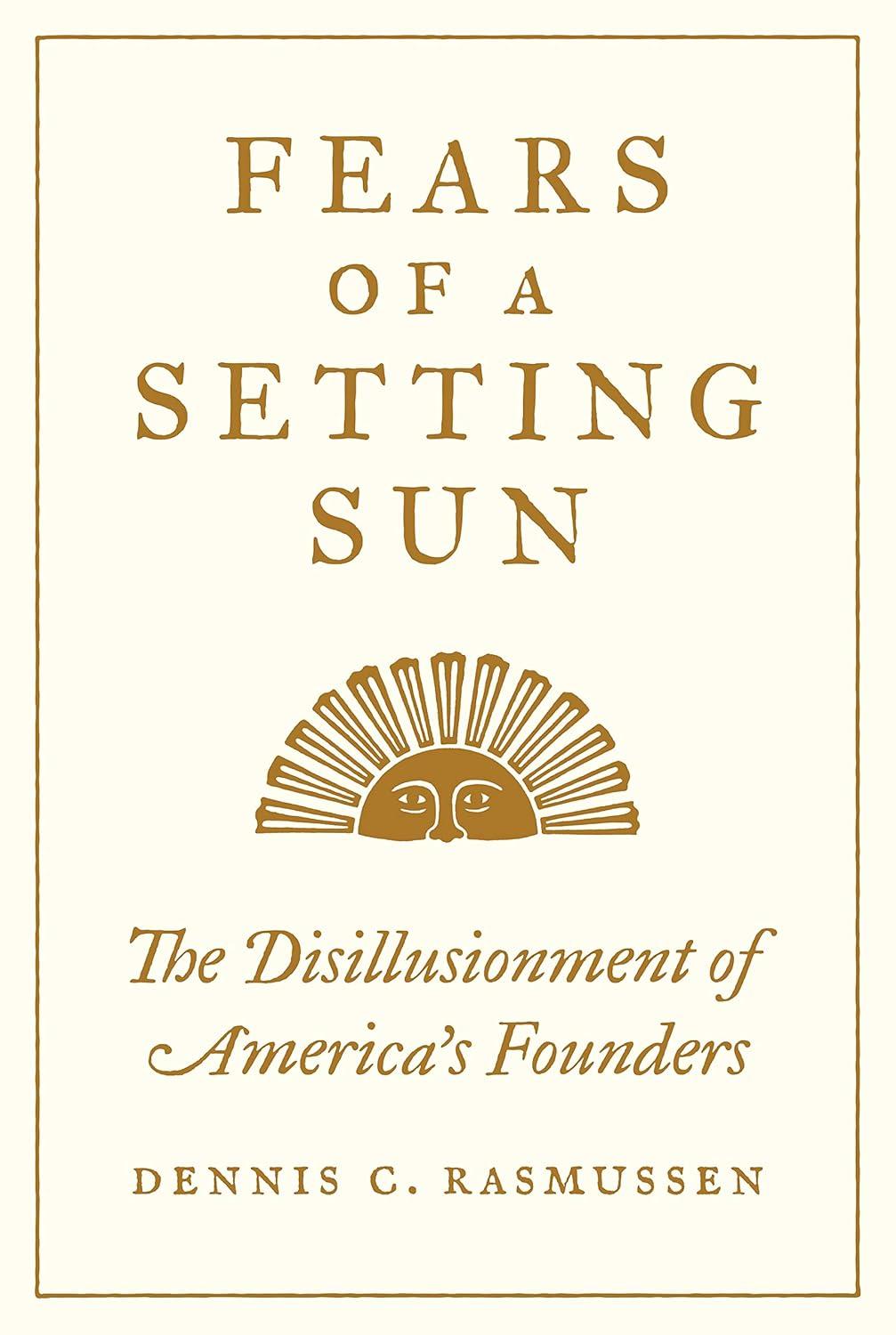The study of history has shifted in the last few decades toward neglected subjects using lenses of race, gender, and culture. This means some topics have fallen out of favor, including deep explorations into the ideas of the United States’ Founding Fathers. Contemporary historians are less likely to focus on the founders’ writings unless they comment specifically on those once-neglected topics. But political theorists are ready to fill the void.
In his recent book, Fears of a Setting Sun: The Disillusionment of America’s Founders, Dennis C. Rasmussen skillfully draws on his expertise in the history of political thought to shed light on a subject rarely broached by historians: the founders’ expressed fears about the future of the United States.
Written in simultaneously accessible and brilliant prose, Rasmussen crafts a flowing narrative built on the writings of the founders themselves. This narrative is further illuminated by his commentary and mastery of the secondary literature. This book can (and should) be enjoyed by nonspecialists, but this does not diminish the originality of the work. The book follows some of the key protagonists of the American War of Independence into the contentious era of the Early Republic.
Despite a plethora of books and biographies about the founders, Rasmussen’s is the first book on their disillusionments — and there was ample material in the primary sources for such a work. The founders were anything but shy in expressing their fears that the United States would not survive, much less prosper. To help the reader grasp the extent of this pessimism, Rasmussen undertakes the herculean effort of producing a portrait gallery of five major founders: Washington, Hamilton, Adams, Jefferson, and Madison.
The sources of Washington’s disillusionment — partisanship and the rise of political parties — are mentioned throughout his farewell address. Rasmussen notes that the speech “is often read as a warning about potential dangers that he feared the country might someday face, but it was just as much a lament about ills that he was sure had already beset it.” Ironically, despite his own warnings, even “the father of the country” could not stay, as Rasmussen writes, “above the partisan fray.” By the end of his second term and especially during his brief two-year retirement, Washington was a partisan Federalist in all but name.
